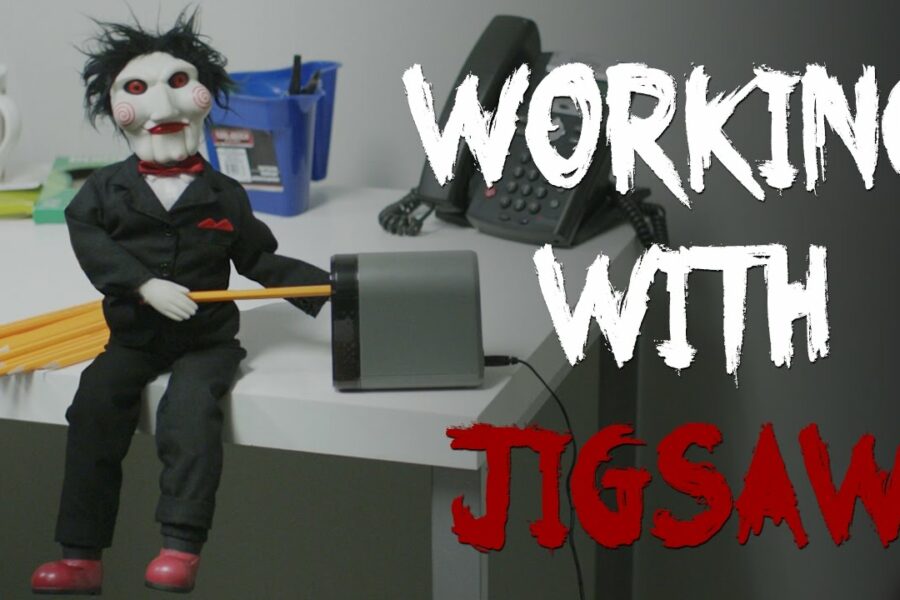As a Digital Project Manager, both the client and your team will look to you to be the fountain of knowledge, give them direction, help resolve problems and make sure everything runs smoothly by being the dependable rock when everyone else is cracking around you.
In my experience, consistently displaying a high degree of honesty, trust and integrity to everyone throughout the digital project’s entire lifecycle helps improve your chances of success, cements your position as a solid leader and earns you respect from both the client and project team alike.
A relationship that is based on honesty and trust with staff should create an environment of mutual respect. This environment should produce a more efficient production environment where staff are willing to go the extra mile to deliver a truly excellent product.
Ed Richardson, Honesty is the best policy.
Honesty and trust in digital projects
Of the many things you can be sure of when running any digital project, one of them is that at some point you will have the choice to be honest or not so honest with either the client or your team. This choice is only ever one that takes more than a minute to debate in your Digital Project Manager brain when the truth is likely to upset someone.
These choices come in all sorts of shapes and sizes but invariably include:
- Explaining to the client why a deliverable is late
- Telling a team member their work isn’t up to scratch
- Admitting you made a mistake yourself
In each instance the temptation for most Digital Project Managers, in fact all human beings, is to at least consider taking the easy route and delivering a distorted version of the truth, or in non-corporate buzzword bingo professional terms – lying.
The fact of the matter is, often not being honest is the easiest option and will immediately make everyone feel great, however it’s pretty rare for this short-term easy option not to come back and bite you right on the backside and this is far more damaging to a relationship with the client or project team in the long run.
As a Digital Project Manager, by cultivating a reputation as an honest straight talking person who will always tell you the truth, no matter how bad the truth is, eventually results in most trusting you when you speak – in business no one wants to have the wool pulled over their eyes and most can spot it a mile off.
So the next time a client demands to know why the deliverable is late when the reason will make you or your agency look less than great, tell them the truth… It will hurt, it will sting and it will be an awkward conversation that you’ll want to end, but, in most cases once the anger has faded away the client will almost always respect you for having the balls to be honest when other weaker digital project managers would’ve lied.
The key lesson is that once a client knows you have the courage to be honest with them when it’s really bad news, they’ll completely trust you to always be honest from that point on and trust pretty much everything you say which, over the course of a project lasting months or years, is an invaluable position to be in as opposed to the oh so common vague feeling of mistrust that often exists between client and web agency.
Integrity in digital project management
Defined by the English dictionary as “Steadfast adherence to a strict moral or ethical code”, integrity is something a Digital Project Manager needs time to develop and demonstrate, but once you have established yourself to the client and your web team as a leader with a great deal of integrity you will find all your working relationships improve dramatically.
Although inextricably linked with honesty and trust, integrity in digital projects is all about acting in the most professional manner possible in front of your client or web team when faced with situations that require you to choose between standing by your principles, or, forgetting you have any for fear of appearing to be going against the grain.
Sometimes telling the truth will not make people happy, or make you the winner of a popularity contest. In some cases, you may suffer from ‘loss of grace’ for telling the truth or for standing up for what is right.
Thomas M. Cunningham, US Naval Academy Fire Department, Leadership 101: Integrity
Examples of displaying integrity in a digital project management role include:
- Accepting responsibility for a mistake that you or one of your project team made
- Openly defending a project team member or client when the temptation is to keep quiet
- Insisting quality standards remain despite the temptation to cut corners
Preceding each of the above examples comes a situation where as a Digital Project Manager you will have a choice between staying quiet and letting someone else take the fall or, as Thomas Cunningham puts it, standing up for what is right.
In these instances it is you that may be hurt and stung by the response, but as with honesty, over time your team and client will respect you for choosing to take this position as your default one.
As a Digital Project Manager, failure to act with honesty and integrity will undoubtedly be your undoing. Both clients and your digital project team will at some point become very wise to the fact you are keeping quiet, blaming others and treat you accordingly – with mistrust – and there is nothing more damaging to a project.
Having the strength to take a few hits for your digital project team or from angry clients on the phone is not easy. It will often feel like you’re getting a load of flak and stress that you really don’t need and know full well you don’t deserve, but, the trust and respect you win from the people that matter is infinitely more valuable to your projects when compared to the reputation you pick up from acting inappropriately.
If you are in a digital project management position, or any other leadership or management position for that matter, I cannot recommend reading the Leadership 101: Integrity article enough – it has absolutely nothing to do with digital projects but everything to do with what it means to be a great leader. If you can manage to apply even one part of it in your day job, you will be a better leader and manager for it!
Honesty, trust and integrity – go on, try it, you just might like it…









My brother and I are researching corporations that have a dishonest person at the top and everyone just looks the other way because if he goes they believe the company will fold.
Thanks for sharing. I agree with you.
Reading your post, you reminded me John G. Miller and the principles he writes about in his books, see http://www.qbq.com. You could like it.
@B Marcello, glad you liked the article. “Eliminates the common, yet dangerous, traps of victim thinking, procrastination, and blame.” – sounds interesting!
Absolutely agree. There is a methodology for both role modelling these principles and instilling them in the team. It involves going beyond time estimates to personal commitments on short interval deliverables. It is called Commitment-Based Project Management. Full disclosure, we have been teaching and promoting it for 15 years.